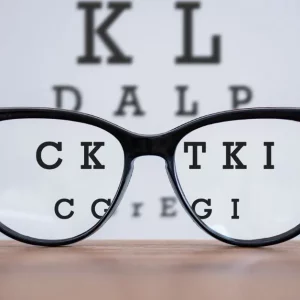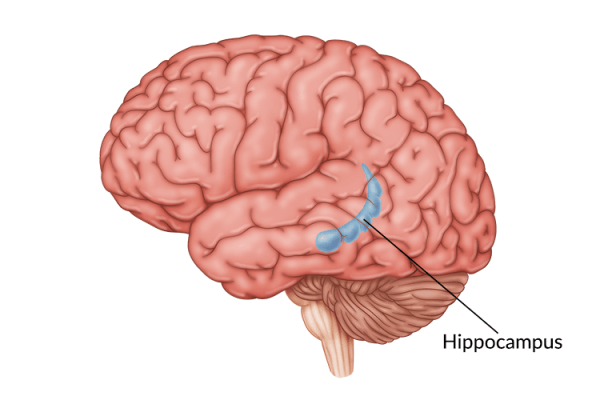Heat sensitivity is a common problem for many TBI patients. After a brain injury, you may be more vulnerable to problems such as heat rash, and you can be at a higher risk of heat stroke. In this article, we review the causes and effects of heat sensitivity after TBI, plus tips for staying cool in warmer weather.
Causes of Heat Sensitivity After TBI
The human body maintains a complex temperature-regulating system that keeps the body at a healthy temperature. The hypothalamus controls this delicate process, the part of the brain that helps modulate numerous body functions by releasing hormones that function to maintain homeostasis. The hypothalamus releases hormones that help balance body fluids and control body temperature.
When the body gets too hot, the hypothalamus releases hormones that cause blood vessels to swell. This allows more heat to be carried by the blood to the skin, which is then released into the air.
The hypothalamus also signals to the middle layers of the skin, or dermis, which contain sweat glands. When the hypothalamus activates these sweat glands, they excrete water to the surface of the skin. This sweat then evaporates from the skin and cools the body.
If the hypothalamus becomes damaged after a brain injury, the body may have trouble regulating its temperature. As a result, heat sensitivity can occur.
Symptoms of Heat Sensitivity
The symptoms of heat sensitivity after TBI can vary from person to person. Some of the most common include:
- Feeling hot in mildly warm weather
- Excessive sweating
- Nausea
- Not sweating enough
- Mood swings when too hot
Excessive body heat can also stop nerve fibers from working. This makes it difficult for messages to get to and from the brain, which can cause problems such as:
- Confusion
- Fatigue
- Weakness
- Balance and vision problems
Symptoms of Heat Stroke
Heat stroke occurs when body temperature gets too high, causing illness. TBI patients with heat sensitivity are at an especially high risk of heatstroke.
Symptoms of heat stroke include:
- Body temperature above 103 degrees Fahrenheit
- Red, hot, and dry skin
- Strong, rapid heartbeat
- Throbbing headache
- Dizziness
- Nausea
- Confusion
- Unconsciousness
Heat stroke can be life-threatening. If you experience any of these symptoms, call 911 and start taking measures to cool yourself.
One of the best ways to cool down is to spray water on your body and sit by a fan. This is especially helpful if your brain injury has affected your sweat production.
Managing TBI and Heat Sensitivity
To avoid heat stroke and other complications, it is crucial to know how to keep your body temperature under control. Since your body’s natural mechanisms to control temperature may be compromised, you will need to take extra precautions.
The following are a few tips to help you manage heat sensitivity after a TBI.
1. Stay hydrated
Staying hydrated is perhaps the best way to avoid overheating. Extra fluid in the body helps regulate body temperature and replenishes the water lost through sweat. It also helps blood flow more easily through the vessels to the muscles, which can prevent fatigue and weakness.
Don’t wait to drink until you are thirsty, as this usually means you are already dehydrated. Instead, take regular drinks throughout the day. If you have difficulty remembering to drink, set an alarm on your watch or phone every hour and drink then.
You do not have to only drink water to stay hydrated. Foods such as strawberries and other fruits contain a lot of water as well, and eating them can help you stay cool.
2. Plan your trips
If possible, plan to only go outside during the coolest parts of the day. In most places, that would be in the morning before 11 am or in the afternoon after 3 pm.
You should also try to do your therapy exercises in the morning or evening. This can help prevent heat exhaustion.
3. Dress cool
Your clothing can cause you to overheat. That’s why it’s best to wear light colors and breathable fabrics, such as cotton and linen. Also, avoid wearing dark colors, as these absorb sunlight and heat.
You should also make sure to bring cooling devices like ice packs or portable fans with you wherever you go. These can help you cool down in any location or circumstance..
Finally, your head and feet are the most vulnerable body parts to heat, so make sure to wear breathable shoes and a hat whenever you are outside.
4. Keep your environment stable
Try to avoid going back and forth between hot and cold environments, such as an air-conditioned building to warm outdoors. Because your brain/hypothalamus is less efficient at regulating body temperature, changing the environment frequently can wreak havoc on your body.
Staying cool will help you avoid fatigue.
5. Take care of your skin
Heat sensitivity can cause red and dry skin. Therefore, make sure you keep your skin clean and moisturized. Pay special attention to folds of skin where heat and moisture can build up and cause problems.
TBI and Heat Sensitivity
Heat sensitivity can be a challenging result of TBI. Although there is no cure, learning the best treatment strategies and cooling measures will allow you to manage heat better and stay healthy.
Talk to your doctor for more ideas on how to deal with heat sensitivity after brain injury.










